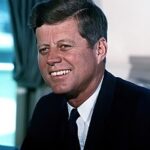The Bay of Pigs Invasion represents one of the most controversial foreign policy decisions in American history. President Kennedy inherited this CIA operation from the Eisenhower administration in early 1961. The plan involved training Cuban exiles to invade Cuba and overthrow Fidel Castro’s communist government.
The Bay of Pigs Invasion Plan
The CIA recruited approximately 1,400 Cuban exiles in Guatemala and Nicaragua. These volunteers formed Brigade 2506, named after a fallen comrade. The agency promised extensive air support and believed Cuban citizens would join the uprising. Kennedy approved the operation but demanded it remain covert to avoid international criticism.
Critical Decision Points ⚠️
Kennedy faced intense pressure from military advisors and CIA Director Allen Dulles. The young president worried about appearing weak against communism during the Cold War. However, he also feared direct American involvement would damage international relations. This created a dangerous compromise that satisfied neither requirement.
The Operation Unfolds
On April 17, 1961, Brigade 2506 landed at the Bay of Pigs. Kennedy withdrew promised air support at the last moment. 📊 Within 72 hours, Castro’s forces captured over 1,100 invaders. The expected popular uprising never materialized, leaving the exiles isolated and defeated.
Impact:
The Bay of Pigs Invasion failure created devastating consequences that reshaped Cold War dynamics. Kennedy’s decision to approve then abandon the operation damaged American credibility worldwide. The failed invasion strengthened Castro’s position and pushed Cuba firmly into the Soviet sphere of influence.
Immediate Political Consequences 🔥
Kennedy publicly accepted full responsibility for the disaster. His approval ratings initially rose due to crisis leadership, but foreign policy credibility plummeted. The president fired CIA Director Allen Dulles and other agency officials. Congressional investigations revealed serious intelligence failures and poor planning throughout the operation.
International Relations Impact 🌍
The invasion attempt convinced Castro that America posed an existential threat to Cuba. Within months, Cuba formally aligned with the Soviet Union for protection. This alliance led directly to the Cuban Missile Crisis in 1962. America’s allies questioned Kennedy’s judgment and decision-making capabilities during future crises.
Long-term Strategic Effects
The failure taught Kennedy valuable lessons about military advisors and CIA operations. 📉 US-Cuba relations deteriorated for decades, creating ongoing diplomatic challenges. The invasion justified Soviet military presence in the Western Hemisphere. Cuban-American relations within the United States became permanently complicated, affecting domestic politics for generations. The disaster also influenced Kennedy’s later decisions regarding Vietnam and other Cold War interventions.
